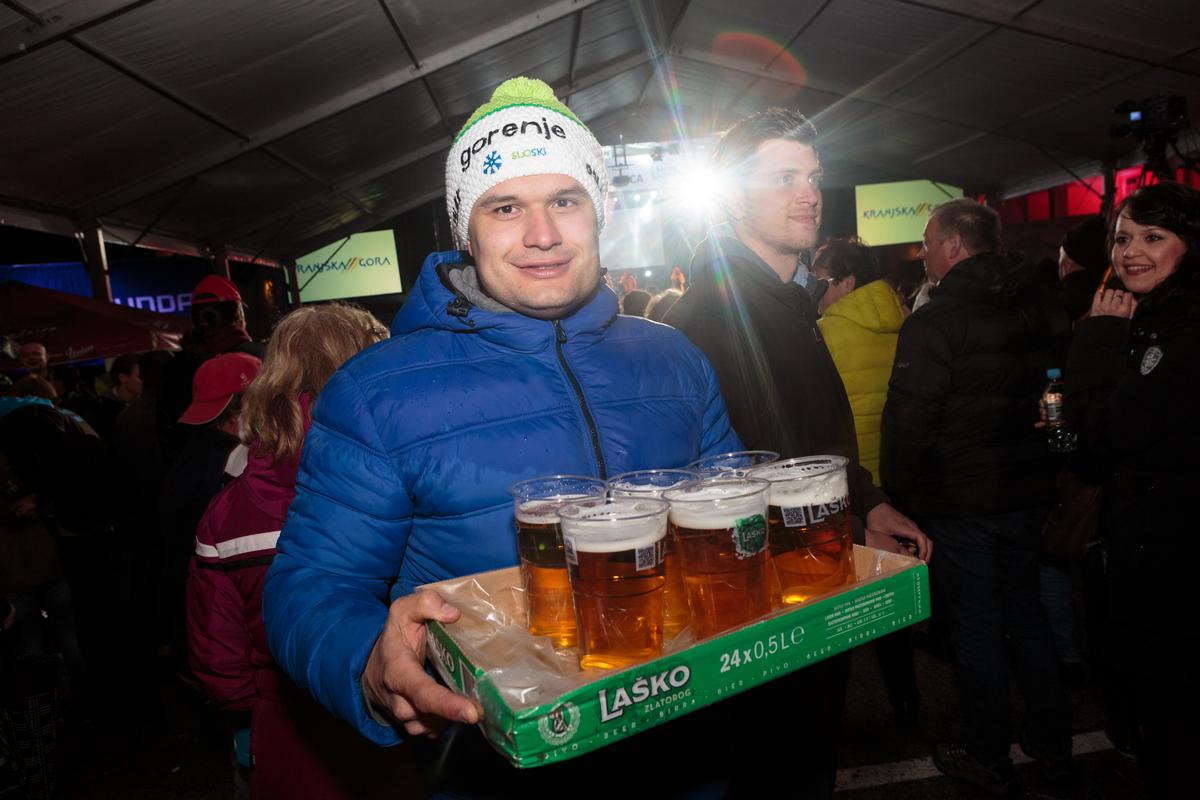
The ZaAB parliamentary group intends to file into the parliamentary procedure an amending law which would again permit sale of alcohol beverages at sport events. The main initiator of the mentioned law is the head of the ZaAB deputies Jani Möderndorfer, also the president of the Union Olimpija basketball club. Most of Sport Federations support the amending law.
"We decided on an amending law out of our conviction that already 12 years ago this measure was disproportionate when compared to other measures. It has excluded the sport events from sale of alcohol, while at other events alcohol beverages can be sold," Möderndorfer explained, and added that already at passing of Keber’s law no serious debate was held on the reasons for forbidding sale of alcohol beverages. "The measure also had no effect," he said. As according to him the change is small, the amended law would be passed by shortened procedure, most likely in May of this year.
The author of the anti-alcohol legislation Dušan Keber explained that the law is in no point prohibiting sale of alcohol beverages, but its purpose was to limit the access to alcohol. The ban on sale of alcohol at sport events was mostly intended as a way of separating sport, which is according to Keber among the rare positive things in the country, and alcohol. Actually, the negative aspect of alcohol seems smaller when associated with positive things.
He emphasized that he had no wish to appear haughty, and claim merits that the consumption of alcohol was reduced by one fourth after the anti-alcohol legislation was introduced. But he claims that sale of alcohol won't bring much profit to sport clubs, unless the guests will drink abundantly. Drinking alcohol at sport events sets a poor example to the young, and consequently the cost for the state will increase. Keber also warned that the amending law allows sale of beverages containing up to 15% of alcohol, while in the countries which still allow sale of alcohol beverages at sport events the content of alcohol in beverages is limited to 5% or less.
The National Institute Of Public Health is dissatisfied with the announced changes of the law, and they are also dissatisfied with the effects of the anti-alcohol law. Ada Hočevar Grom from the National Institute of Public Health cautioned that 85% of 15-year-old teenagers drink alcoholic beverages, although the age limit for purchase of alcohol is 18 years. They have also noticed that young women are drinking more. In Slovenia ten persons per day are hospitalized due to excessive drinking.
She said that alcohol costs our country 160 million euros per year, and if the cost of consequences of traffic accident, domestic violence etc. are considered, even 242 million euros, which is more than the collected excise duties on alcohol beverages. "The athletes should be role models for the young," she emphasized, and added that the limited accessibility and high prices have been proven efficient.
Gregor Cerar; Translated by G. K.

































































